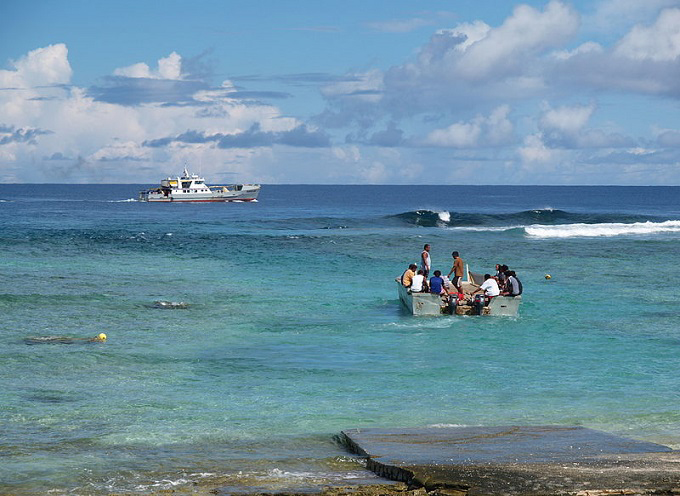
As Tokelau’s ninth government takes shape, the new leader is raising concerns over New Zealand’s treatment of its last remaining Pacific territory.
Ulu-o-Tokelau Siopili Perez used his opening speech at the General Fono (Parliament) last week to protest against proposed veto powers for New Zealand’s Administrator to Tokelau.
The changes would put Administrator David Nicholson in control of the use of Tokelau’s development funds for any projects more than $500,000 — oversight not seen since the Ministry of Foreign Affairs and Trade (MFAT) relinquished it to the General Fono in 1996.
Labour’s Pacific Island Affairs spokesperson Su’a William Sio said power over Tokelau’s affairs should lie with the General Fono, not New Zealand.
“This kind of heavy handed approach smells of arrogance and I think it would be an affront to a nation that is seeking self-determination,” he said.
Tony Angelo, a constitutional adviser to Tokelau’s Taupulega (Council of Elders), said the veto powers could compromise New Zealand’s compliance with the United Nations decolonisation requirements.
The UN ruled in 1960 that all peoples have the right to free political status and economic, social and cultural development.
‘Step back’
“I think the result would be, as the Ulu says, a step back from what has been relative autonomy,” said Dr Angelo.
Auckland University anthropologist Dr Judith Huntsman said the administrator’s move was unusual at a time when Ulu was promising the relocation of government offices in Apia, Samoa to Tokelau.
“[Tokelau is] pushing to get that office under the control of the people of the islands rather than that being viewed by outsiders and [MFAT] as the centre of Tokelau,” she said.
Su’a said MFAT was “stuck in colonial thinking that belongs to a bygone era” and it made no sense to have the office in Apia.
He said Foreign Minister Murray McCully was travelling to Apia to meet with Ulu to discuss his comments at the General Fono.
MFAT confirmed McCully would be in Samoa this week but did not respond when asked about Su’a’s claims.
The proposed veto powers come less than a month after it was reported Tokelau spent millions on two helicopters to circumvent the 24-hour boat journey from Apia, without proper certification or certainty the aircraft could make the lengthy trip.
‘Extravagances’
McCully told 1News at the time that the purchases were “extravagances” and New Zealand would “reflect on its own budgetary arrangements” with Tokelau.
“Given there appears to have been a breakdown in Tokelau’s governance, New Zealand is reviewing the oversight it has of capital expenditure,” McCully said in a written statement.
Although the funds for the helicopters reportedly came out Tokelau’s income from fishing licences, Dr Huntsman said this would still have to be sourced from Tokelau’s International Trust Fund.
The fund, set up in 2004, was started with contributions from New Zealand’s government and sat at over $78 million at the end of the 2014 financial year.
Mackenzie Smith is a Te Waha Nui student journalist at Auckland University of Technology.








































